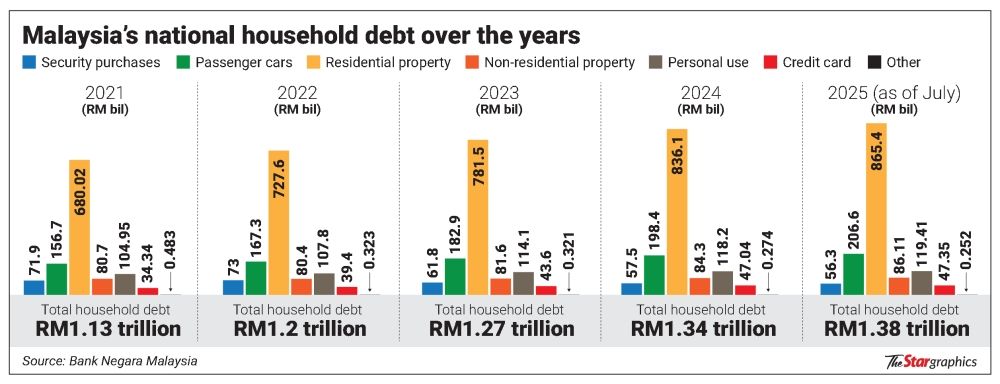PETALING JAYA: Financial literacy efforts are bearing fruit, with ordinary Malaysians describing how professional guidance kept them from falling into hidden debt traps.
For 20-year-old student Zharif Azhar, the lure of freebies nearly cost him financial instability.
“I almost signed up for multiple credit cards because of the free gifts they offered. Luckily, I attended a financial literacy session at university where planners explained the long-term costs of debt.
“That talk opened my eyes, and now I budget carefully instead of rushing into commitments I can’t handle,” he said in an interview.
Housewife Izzati Hafnan, 46, said her biggest concern was her teenage daughter’s use of buy-now-pay-later schemes.
“When my daughter started using buy-now-pay-later plans for her shopping, I was worried she might get carried away.
“I spoke to a financial planner who explained how easy it is for small purchases to pile up into big debts.
“It gave me the confidence to set limits at home, and I now feel more at ease knowing she understands the risk.”
For trader Nani Surya, 41, professional advice was a turning point in avoiding costly mistakes.
“Running a small shop, I used to think taking more loans was the only way to keep things moving.
“But after sitting down with Credit Counselling and Debt Management Agency (AKPK) for financial advice, I realised not every loan is worth it.
“They showed me how to manage cash flow properly, and I avoided signing a loan that would have put my shop at risk,” she said.
Meanwhile, 23-year-old delivery rider Anas Safwan relied on strict self-discipline when faced with unstable income and mounting debt.
“As a rider, my income goes up and down every week, so when I had to pay off my motorbike loan and a few personal debts, I just relied on my self-discipline.
“I keep a notebook to track every sen, cut down on eating out, and force myself to set aside cash before spending on anything else.
“It was stressful without guidance, but I didn’t want to owe anyone more than I already did,” he shared.
According to AKPK’s Corporate Communications head, Roha-nizam Talib, efforts are expanding, particularly on financial literacy, under the newly passed Consumer Credit Act (CCA).
“AKPK will be one of the partners of the Consumer Credit Commission to help regulate credit providers so that they comply with requirements.
“Once the CCA is fully enforced, providers will be required to assess more thoroughly before offering facilities, making it easier for us to assist customers.”
She added that AKPK has identified significant gaps in financial literacy, particularly among youths drawn to buy-now-pay-later spending for gadgets, coffee and even daily necessities.
“Our education programmes aim to reach as many Malaysians as possible, especially young people tied to the ‘fear of missing out’ (FOMO) and ‘you only live once’ (YOLO) culture.
“The goal is to ensure they understand the purpose of borrowing, their ability to repay and whether their income is sufficient to cover debt and daily expenses,” she said.
Since 2006, AKPK has provided comprehensive financial counselling, a mandate that will continue and expand with the CCA, Rohanizam added.










 Our cars are costing us our homes!
Our cars are costing us our homes!